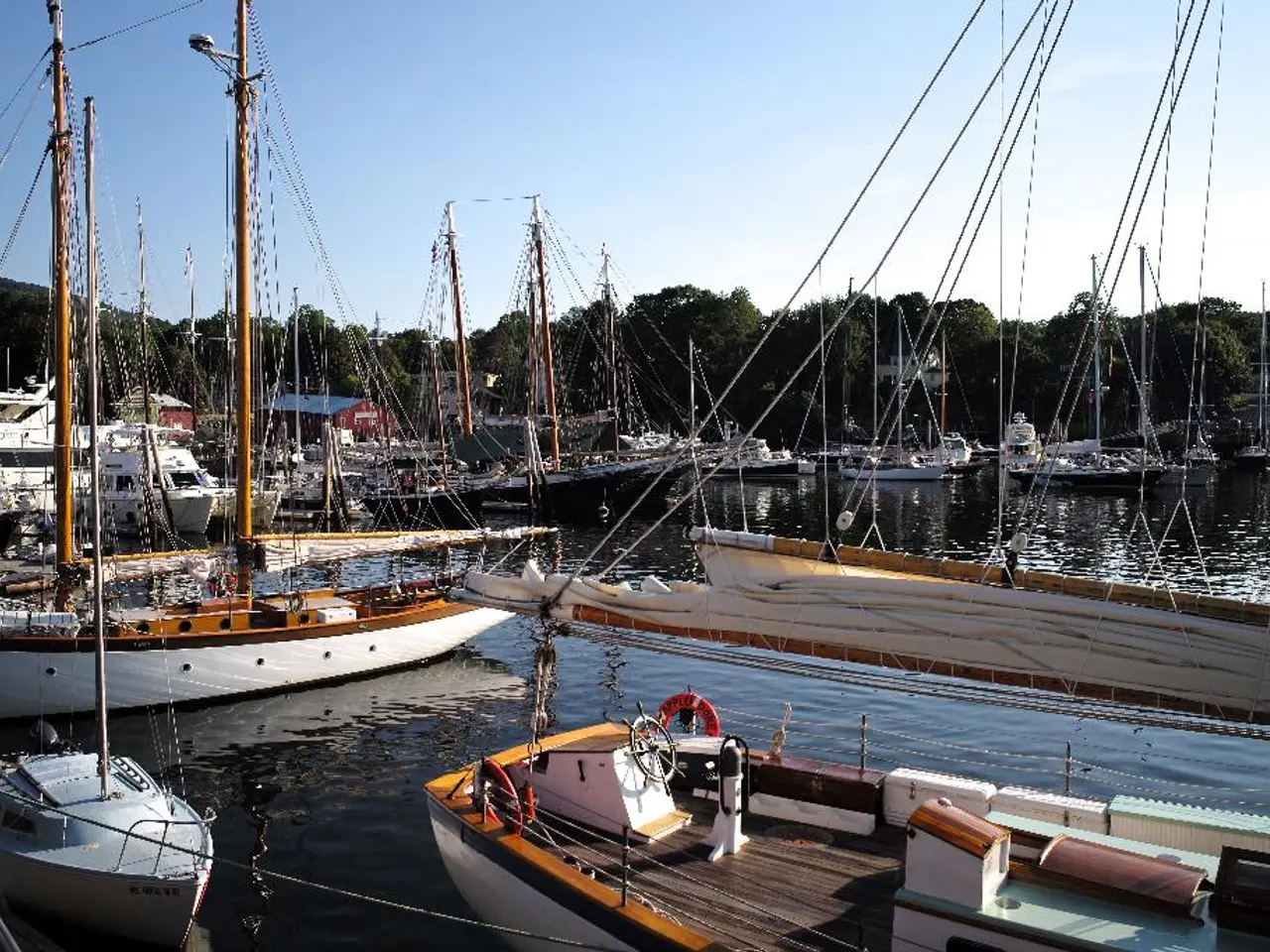EU Water Resilience Strategy fails to meet expectations in funding and effectiveness
European Commission Unveils Water Resilience Strategy
The European Commission has launched the EU Water Resilience Strategy, a comprehensive plan aimed at improving the resilience of water resources across the continent. The Strategy, which has been met with both praise and criticism, outlines various initiatives to address key threats to water pollution and promote Nature-based Solutions (NbS).
One of the key proposals in the Strategy is the introduction of a 'Sponge Facility' and an initiative on Blue and Green corridors as frameworks to scale up NbS. These initiatives aim to enhance the capacity of natural systems to cope with water-related challenges, such as floods and droughts.
However, the Strategy has been criticized for lacking concrete targets and dedicated funding for NbS. The Living Rivers Europe NGO coalition, for instance, has called for measures to address Per- and Polyfluoroalkyl Substances (PFAS) that tackle upstream prevention and reinforce the Polluter Pays Principle. The coalition has also expressed concern over the absence of legally binding targets or dedicated funding for NbS in the Strategy.
Another area of concern is the Strategy's approach to the EU's climate adaptation goals. The Strategy lacks a clear threshold for the EU's climate adaptation goals, leading to questions about its effectiveness in addressing the challenges posed by climate change.
The Strategy also faces criticism for its lack of binding commitments, dedicated funding, and governance tools for implementation. The German NGO coalition "Netzwerk Wasser und Landwirtschaft" has demanded the prioritization of natural water retention measures in the European Union and has registered as an observer for the implementation of the European Commission's Water Resources Strategy Plan.
Helena Rodrigues, Ocean Policy Officer at WWF European Policy Office, has stated that the ocean is in poor condition and the revision of the Marine Strategy Framework Directive should not result in weaker rules. The Commission has acknowledged this concern and has promised to revise the Directive as an opportunity to address the impact of human activities on nature.
The Commission has also recognised PFAS and nutrient pollution as key threats to water pollution. To address these issues, the Strategy proposes integrated monitoring, support for Member States to reduce nutrient run-off, and a Public-Private Partnership for PFAS detection and remediation.
The Commission has also called for the implementation of existing EU water laws for achieving water resilience. However, the Strategy does not set binding limits or uphold ecological flow requirements, leading to concerns about its ability to ensure the health of Europe's water bodies.
The Commission has proposed voluntary targets to improve water efficiency by 10% by 2030, but does not provide a baseline, sectoral roadmap, or enforcement mechanism. This has raised questions about the Strategy's effectiveness in achieving its goals.
The real test for the Water Resilience Strategy will be in its implementation across the EU. The Strategy will require follow-up measures by the European Commission to enforce the Water Framework Directive. The Living Rivers Europe NGO coalition stands ready to contribute to the EU's paradigm shift in managing and valuing its most precious resource. The Commission's Water Resilience Strategy will be closely watched in the coming months as it navigates these challenges and works towards a more resilient and sustainable water future for Europe.








